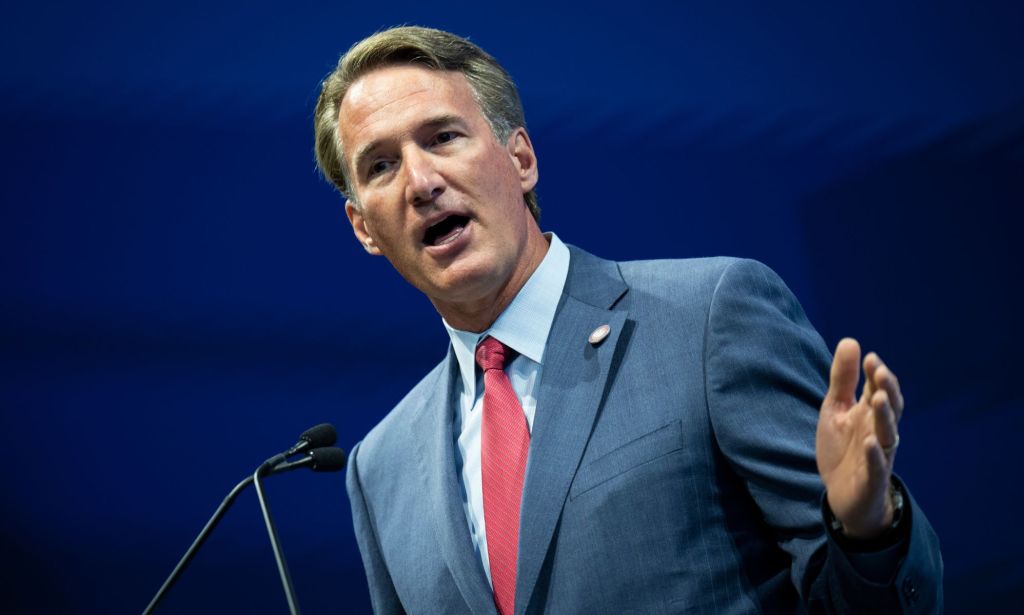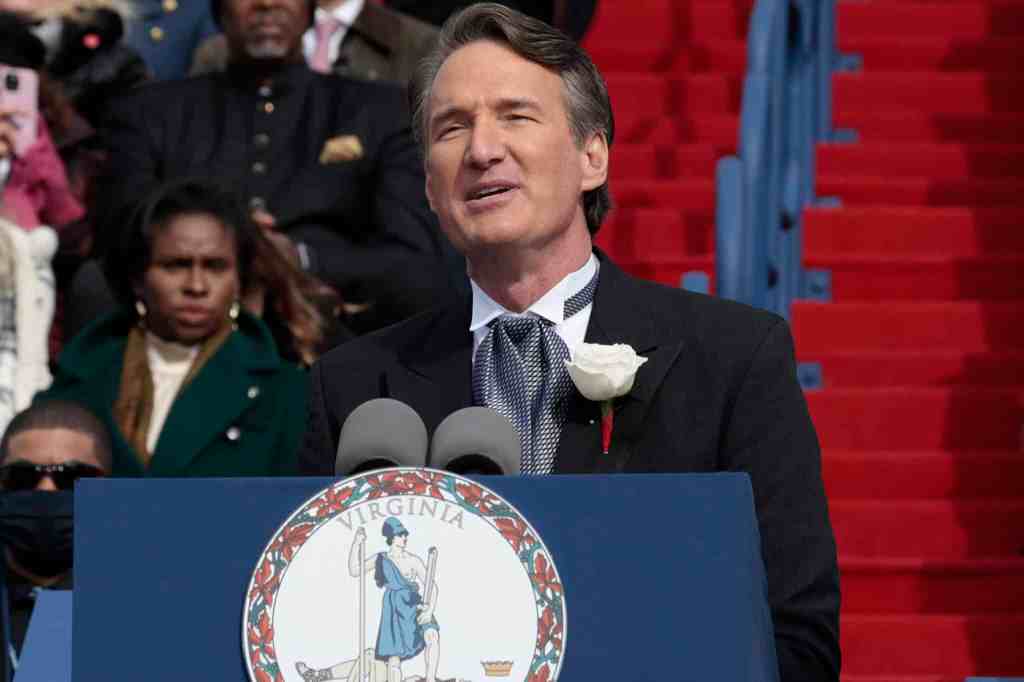Students protest Virginia schools anti-trans policies: ‘We will be bullied and dead-named’

Youngkin’s anti-trans policies are still being protested by students. (Getty)
Students in Virginia gathered outside the state’s Department of Education to protest Governor Glenn Youngkin’s anti-trans school policies.
Youngkin’s policies forbid transgender students from using the bathroom that corresponds with their gender, require schools to out transgender students to their parents, and demand that schools defer to parents on students’ names, nicknames, and “pronouns, if any” as well as any other “social transition” they may display at school.
This move includes Virginia in an ever-growing list of US States succumbing to the Republican-backed parental rights movement that is carelessly taking control of the education system and restricting students’ rights to privacy, freedom of speech and expression, and safety.

The Pride Liberation Project, a student-led organisation behind the protest, has referred to Youngkin’s changes as the ‘Don’t Be Trans’ policies.
Their protests against the so-called ‘Don’t Be Trans’ guidance comes shortly after Youngkin’s administration officially enacted and finalised the policies this summer.
Gathered outside of the Virginia Department of Education headquarters on Friday (22 September), at least 40 students called out chants like “VDOE, let us be.”
One student at the demonstration, 18-year-old Ranger Balleisen told Richmond Times-Dispatch that Youngkin’s policy was a blatant attempt to put transgender youth in danger.
“We’re going to be forced back into the closet in schools we thought were safe, we’re going to be forced off of our school sports teams, and forced out of the bathrooms we want to use,” he said.
“We will be bullied and dead-named, as is promoted in these policies.”
Meanwhile, a spokesperson for Governor Youngkin, Macaulay Porter said of the policies: “The guidelines make it clear that when parents are part of the process, schools will accommodate the requests of children and their families.
“While people exercise their free speech, these policies state that students should be treated with compassion and schools should be free from bullying and harassment.”
Youngkin’s new school policies were introduced last year as a model for school boards in the area.
Individual school boards must implement their own policies with the state’s model policies in mind – though left-leaning school boards in Virginia have already stated that they will not be implementing the new policies introduced by Youngkin.
While the decision to ignore Youngkin’s anti-trans policies may be unanimous in certain school districts, others are having a harder time standing up for their students.
For example, the Virginia Beach School Board has been sued by two local parents for refusing to follow Youngkin’s guidance, Richmond Times-Dispatch reports.
The lawsuit is seeking an injunction that would require the school board to adopt Youngkin’s new policies, despite their vote not to.

Youngkin has suggested in interviews that he can’t understand the outraged response to his school policies, insisting that they aren’t “controversial.”
Speaking on CNN’s State of the Union in October 2022 that he was fixing “a wrong” with previous guidance that allowed for individual schools to decide on policies for students on a case-by-case basis.
“The previous administration had a policy that excluded parents and, in fact, particularly didn’t require the involvement of parents,” he said. “Children don’t belong to the state, they belong to families.
“And so, in these most important decisions, step one has to be to engage parents, not the exclusion of a trusted teacher or an advisor, but to make sure that parents are involved in their children’s lives.”
Last week’s protest is just the latest attempt from Virginia students to have their voices heard.
When plans to implement the anti-trans policies were first announced last year, students in almost 100 schools across Virginia staged walk-outs in protest and even had the backing of President Joe Biden.
Still, despite student push-back, Youngkin’s administration has pushed on with the dangerous new policies, disregarding young people’s voices and potentially putting them in danger in order to satisfy “parental rights.”

